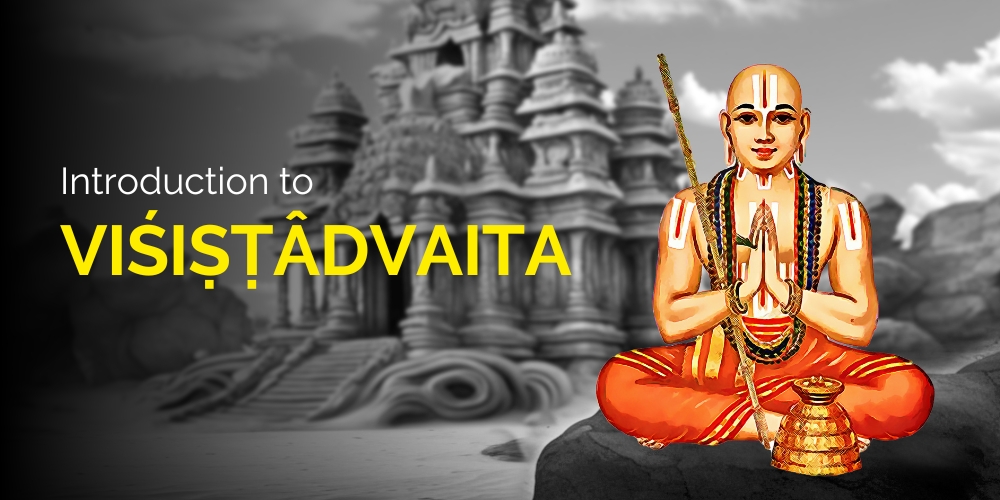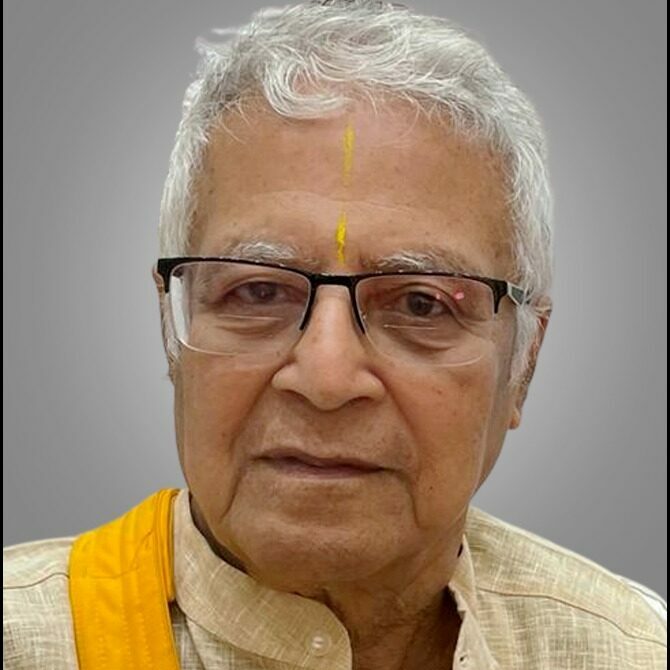
Introduction to VIŚIṢṬÂDVAITA
VIŚIṢṬÂDVAITA PHILOSOPHY as promulgated by Sri Rảmảnuja which was extracted from the Upaniṣads with the help of the texts of Smṛtis, Ītihāsas and Purānās especially the Bhagavad Gītā and the Brahma sūtras.
Sri Rảmảnuja (1017 to 1137) was a theologian, philosopher and scriptural exegete, considered the most precious Ācāryas in the religion of Śrī Vaiṣṇavism, is associated with the popular term Viśiṣṭādvaita.
The Vaishnavite tradition is known for the loving devotion (bhakti) and total surrender (prapatti) to Lord Vishnu also known as Nārāyaṇa.
Faculty
*The Course may not be offered if the number of registrations is less than 15.
16 April 2024 - 20 August 2024
7:00 PM-8:00 PM IST
Every Tuesday
Introduction
The historical development of Śrĭvaiṣṇavism can be divided into three main eras – Vedic period to Śrĭ Rāmānuja which starts from Vedas, Purāṇas and itihāsas, Pāncharāthra Samhitas, all the twelve Âzhvārs who bestowed us with their bhakti infused Tamil songs the collection of which is known as Nalayira Divya Prabandham (four thousand Holy Hymns, highly respected as Drảvida Veda). As the religion draws inspiration from both these Vedas, it is also called Ubhaya Vedanata.
The next phase starts Śrĭ Rāmānuja (1017 to 1137 AD) to Vedānta Deśika (1268to 1369CE)and Manavala Mamunigal (1370 to 1443 CE) which gave birth to many religious texts both in Sanskrit and Tamil and a mix of two called Maṇipravāḷa which became very popular among the elite then. Many texts mostly interpretations suiting the ideology of the philosophy and Vyākyānams (commentaries) to era which is considered a treasure house for posterity. The clan of Azhvas and Acāryas is well respected in the tradition and next only to the Lord supreme Śrĭman Nārāyaṇa. The Vaiṣṇava literary world had a renaissance during this period.
The third and final dominant period is Post Maṇavāla Māmunigaḷ to the present day which is dominated by different mutts under jeers to take care of the tradition. The spirit of Śrĭ Rāmānuja and his philosophy is well guarded with the help of many periodicals and e-magazines and the mutts are flourishing with funds from overseas devotees.
Course Objectives
All the three Vedanta schools which are now extant -Advaita, Vistadvaita, and Dwaita declare that moksha or liberation is the basic, dominant, and achievable goal of human existence. A popular verse states “The three great preceptors, Śankara, Rảmảnuja, and Madhava have advented here and erected staircases to ascend to the terrace of liberation”
Śrĭ Śaṁkara Rảmảnuja Madhvảchảryaḥ avatảram atra I
Ye kila sopảnatatim niramảsiṣata muktisudham adhiroḍhuṁ II
The study of Vedảnta will not be complete without realizing all the three branches and hence the main objective of the course is to expose every branch to the students so that the Vedanta is absorbed well into every mind.
Course Outcomes
If taught and understood properly ,the outcome is definitely knowledge with a sound understanding of Vedanta in this contemporary world of Western education
- History of Vaishnavism
- Life and contributions of Azhvaara and Acharyas
- Works of Azhwars
- Works of Acharyas
- Commentary literature in Manipravala language (A mix of Sanskrit and Tamil) of early Acharyas
- The philosophy of Vaishnavism –Visistadvaita
- Islamic invasions and the ruin of Srirangam and other temples in South India
- The various mutts that perpetuate Vishnavism
- Sanskrit and Tamil Bhakti songs in praise of Vishnu
- Other schools of Vaishnavaism like Chaitanya ,Navya Visishtadvaita,Nimbarka and the like
Course includes
- Live sessions
- Access to class recordings (for asynchronous participation)
- Certificate of Completion
*Important Enrollment Notice: Please note that this course requires a minimum of 15 registrations to proceed. If the number of enrolled students falls short of this requirement, the course will not be offered. In such an event, all registered participants will be informed and a full refund will be issued.

